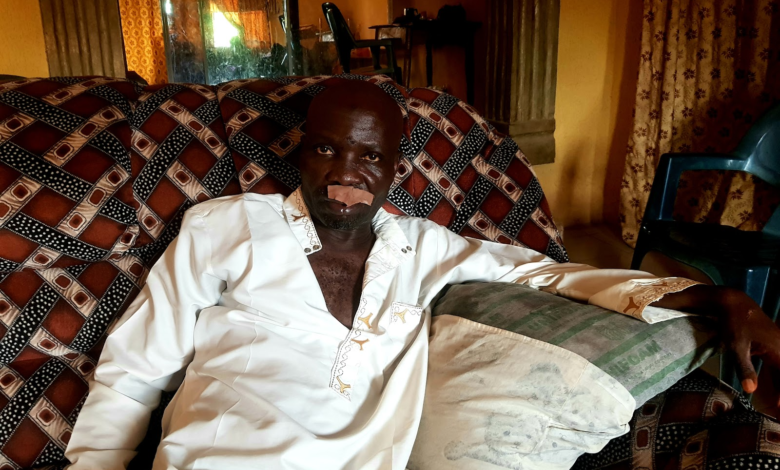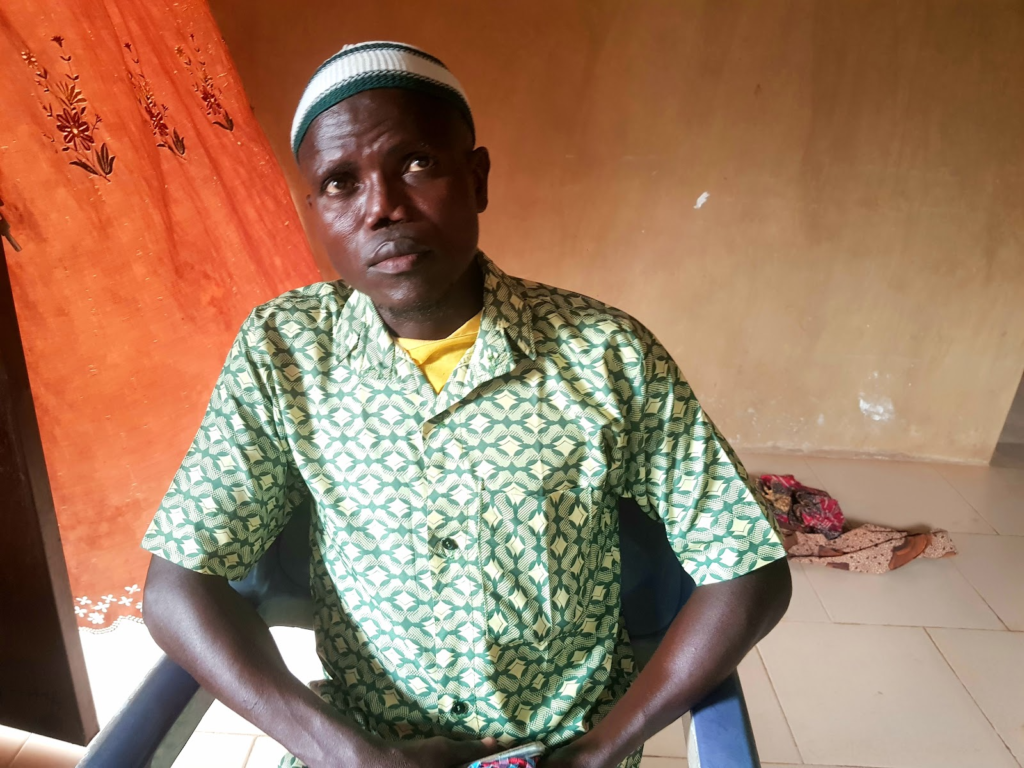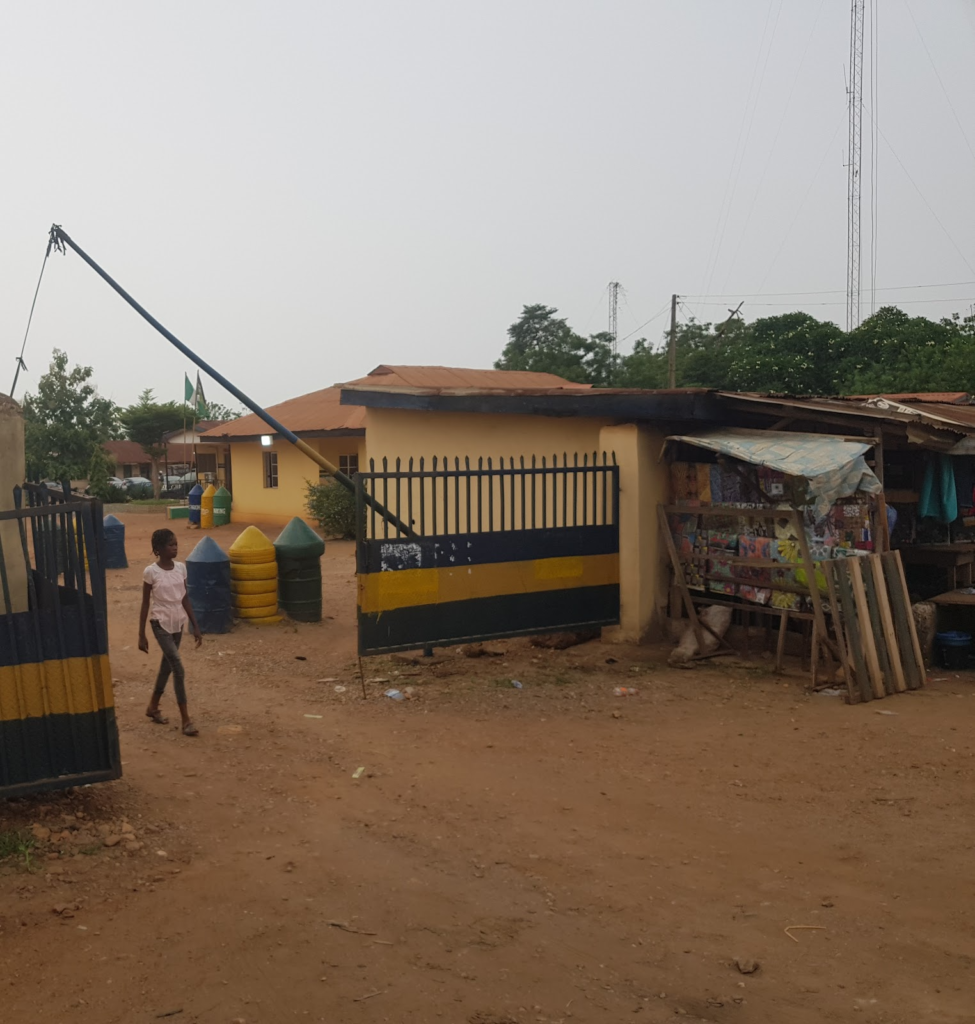The Traditional Rituals Causing Religious Tension In Southwest Nigeria
Devotees of Oro, an ancient deity, regularly impose street curfews so rites can be held. Breaking the curfew results in a beating, Christians and Muslims in Southwest Nigeria are caught in the fracas, causing tensions that go to the heart of the constitution.

When adherents of the Oro traditional deity broke the fence of a mosque and forced their way in, Imam Abdul-lateef Adesiyan, could not just stand and watch.
They were flogging the Muslims with canes, instructing them to leave the ablution area of the mosque in Ilare Ile-Ife area of Osun State Southwest Nigeria.
Adesiyan moved to stop them. “They descended on me with an iron rod used to injure me on the face,” he told HumAngle.
“I was thereafter rushed to OAU Teaching Hospital where my face was stitched at the emergency care unit. I had to sleep in the hospital.”
As a result of the injuries he received in the March 30 attack, Adesiyan could not complete his Ramadan fast, let alone lead his congregation in prayer. Apart from being an Imam, he works as a government secondary school teacher in Ile-Ife, an ancient Yoruba city in Osun State.
The Oro festival is an annual, age-old, traditional festival usually celebrated in many Yoruba towns and settlements in Nigeria. According to worshippers, it is used to cleanse communities of bad omen. It can be held at different times of year across the southwest, depending on local custom.
The rites are usually, but not always, performed at night. People are forbidden to leave their homes once the ritual has begun. Devotees dressed in white and bearing sticks, parade through the streets beating out the bad spirits.

Anyone who they encounter can be assured of receiving a beating. Women are absolutely forbidden from witnessing the rituals, and if they do stumble into the procession, they are singled out and beaten harder.
The implication of running into the devotees is that the person could even be killed as part of the festival’s “sacrifice”.
That a “cleansing” ritual can be so violent is a paradox embedded in the practice.
As the time of the festival approaches, a town crier goes around to notify people of the curfew before Oro is paraded within the community.
The devotees then shift the ritual from the night to the daytime. Little to no consideration is given to the freedom of movement of people from other faiths. This often leads to conflict where Muslims and Christians are caught in a fracas with the traditionalists.
Injured
HumAngle obtained a video clip of the recent violence in Ile-Ife. It showed how many people were injured and the mosque’s property damaged.
Narrating his bitter experience, Adeyeye Muritala, a bricklayer said he was performing ablution when “a member of the Oro devotees arrived, asking us to leave the mosque. When we told them he was wrong because we were about to pray, they started beating us. I sustained injury on my left hand and my phone was also destroyed in the process.”


Adesakin Abdulbaqee, a carpenter added that the incident with the Oro worshipers was a sad one. Like his Imam, he was hit on the head with an iron rod too.
Though taken to hospital for treatment, Abdulbaqee asked that he should be discharged the following day because he could not afford his medical bills. He is currently caring for himself at home.
Protest
On Friday, March 31, some Muslims took to the streets to express their displeasure over the attacks on the mosque. They demanded an end to the activities of traditional worshippers during the day.
Sakariyau Adesiyan, the former chairman of Nigeria Union of Teachers (NUT) and Nigeria Labour Congress (NLC) in Osun State, alleged that the latest incident was not the first attack on Muslims and Christians during Oro procession in Ile-Ife.

“We are saying enough is enough. We are not happy with the sad development. We want justice to be served on the perpetrators.”
When contacted for comments, Olaolu Dada, head of traditional worshipers in Ile-Ife, said the ancient town is solely meant for traditionalists. He argued that Christians and Muslims should learn to respect Oro worshippers’ laws and orders.
“Ile-Ife is known for worshiping deities and making sacrifices to gods. We made a curfew announcement before the day of our last Oro procession. We announced it on the radio and we expected everyone to obey our orders,” Dada said. “The refusal of the Muslims to stay indoors was what led to the clash.”

Dada’s claims contradict the provisions of the 1999 Constitution of the Federal Republic of Nigeria. The law states that every person shall be entitled to freedom of thought, conscience, and religion. It also guarantees freedom of movement and association.
Lawyers told HumAngle that the restriction of movement during the Oro festivals threatened the freedom of movement of people of other faiths and beliefs.
“It is pathetic that we still have festivals that deny people their freedom even in the daylight. What happens to people, especially women who have important places to visit during the Oro procession?” Abass Animashahun, a human rights lawyer, queried.
He also explained that Sections 305 and 308 of the Constitution give only the government the power to declare a curfew when there are emergencies.
Police actions, inactions
Our reporter visited Moore Police Station to speak with the Division Police Officer (DPO) in the area on what was done to douse tension when the confrontation occurred.
Gabriel Igbowu, the administrative assistant to the DPO, said police officers were deployed to the scene of the crisis and ensured that the mosque was not razed by the traditionalists. Asked if anybody has been arrested, he said: “The Commissioner of Police has sent invitations to those involved for proper investigation.”
Meanwhile, Yemisi Opalola, Osun State Police Command spokesperson, said the police are yet to arrest anybody following the crisis. She added that investigations are still going on to unravel the circumstances surrounding the incident.

As of the time of filing this report, the Osun State government was yet to react to the crisis. Rasheed Olawale, spokesperson of Governor Ademola Adeleke did not also respond to HumAngle’s enquiries.
Miscarriage
Like Ile-Ife, Oro worshippers have a history of fighting with people of other faiths in different states.
In Aug. 2022, a clash between Oro devotees and members of the Truth and The Spirit Prophetic Church, led to the death of a tailor, Akeem Adebisi, in the Oko-Oba area of Lagos State. The traditionalists had approached the church during a vigil and instructed them to stop but they disagreed. This degenerated into a clash between the Oro traditionalists and the church members.
In Aug. 2021, there was conflict between Oro worshippers and Muslims in Idiroko area of Ogun State, over the imposition of a 24-hour curfew to celebrate Oro festival. The festival turned violent when the traditionalists clashed with Muslim faithful who were observing their evening prayer.
Bimpe Kalejaiye, a pregnant woman who once encountered Oro devotees during their procession, said she got a beating that led to her miscarriage.
“It happened two years ago in Ife. It was the worst day of my life. I never knew they had imposed curfew. I was returning from a trip when I met them. They threatened to take me to their shrine but I was crying and begging. I got beaten till I had miscarriage,” she said.

In a bid to address the challenges, clerics urged Oro devotees to appease their gods at night when most people are sleeping. One of them is Adebiyi Layo, a pastor at Christ Apostolic Church in Ibadan. “The practice is not in conformity with daylight activities, so it should be restricted to midnight,” he advised.
But Awoyemi Bamidele, a traditionalist, argued that “though Oro festivals are celebrated in the midnight hours, there are some situations where unexpected things happen in the land and there may be need to render daytime sacrifice to reverse the evil.”
Tayo Yahya, the executive secretary of the Muslim Ummah of South West Nigeria, said the increase in religious intolerance and violence in recent years is condemnable. He, however, called on the government to ensure that human rights are preserved during Oro festivals.
Nigeria’s minister of information and culture, Lai Mohammed did not respond to enquiries when contacted on our findings.
Support Our Journalism
There are millions of ordinary people affected by conflict in Africa whose stories are missing in the mainstream media. HumAngle is determined to tell those challenging and under-reported stories, hoping that the people impacted by these conflicts will find the safety and security they deserve.
To ensure that we continue to provide public service coverage, we have a small favour to ask you. We want you to be part of our journalistic endeavour by contributing a token to us.
Your donation will further promote a robust, free, and independent media.
Donate HereStay Closer To The Stories That Matter




